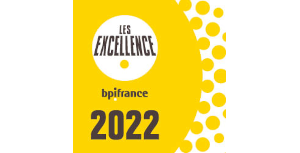Recent legal reform introduced by the French Decree No. 2025‑660 of July 18, 2025, published in the Official gazette, establishes as a principle the conventional inquiry of legal cases brought before the first instance courts, Courts of Appeals and the French Supreme Court.
Through this reform, the French government also recodifies the alternative dispute resolution (ADR), bringing them all together under Book V of the French Code of Civil Procedure , dedicated to amicable resolution of disputes.
It entered into force on September 1st, 2025 for ongoing proceedings concerning provisions relating to alternative dispute resolutions (ADR), and for proceedings initiated on that date for the provisions relating to conventional inquiry.
The judges’ new mission of active cooperation with the parties
The new Article 21 of the French Code of Civil Procedure now stipulates that, in addition to their conciliation duty, the judges will be required to actively cooperate with the parties. In this regard, the judges must seek the most appropriate method of dispute resolution, and may refer the cases to an amicable settlement if appropriate.
Moreover, the new Article 1528 of the French Code of Civil Procedure also emphasizes this possibility for the judges to act in favor of an amicable resolution, as the parties may decide to resolve a dispute amicably, notably with the assistance of a judge.
By this reform, the judge may also delegate his conciliator role to another professional, unless a law explicitly prohibits it; for instance, the new Article 1071 of the French Code of Civil Procedure provides that in family matters, the judge cannot delegate the mission of conciliation to a “conciliateur de justice” ; however, he may propose a mediation measure to the parties.
The court injunction to meet a mediator or a conciliator becomes generalised
The judges’ conciliatory role is strengthened, the article 1533 of the French Code of Civil Procedure states that they may invite and order the parties to meet a mediator or a “conciliateur de justice”. If one of the parties refuses to comply with the judges’ injunction, it may be subject to a civil fine, which may be up to €10,000.
The court injunction to meet a mediator or a “conciliateur de justice” aims to enable parties to receive free information on amicable settlement methods, so they can decide for themselves whether or not to use them.
The judge in charge of the case may then, after obtaining the parties’ agreement, order a conciliation or mediation (Article 1534 of the French Code of Civil Procedure).
The initial term of the conciliation or mediation mission is extended to 5 months (instead of 3); it can be prolonged by an additional 3 months term (Article 1534‑4 of the French Code of Civil Procedure).
The reorganisation of the provisions of Book V regarding alternative dispute resolution (ADR)
Book V of the French Code of Civil Procedure has been reorganised for clarity: from now , it gathers all types of alternative dispute resolution, notably the provisions relating to the amicable settlement hearing (Articles 1532 et seq. of the French Code of Civil Procedure), which were previously in Articles 774‑1 to 774‑4 of the French Code of Civil Procedure.
A preliminary title provides general provisions clarifying the conditions of recourse to alternative dispute resolution, and characteristics such as confidentiality and its limits.
Conciliation and mediation receive distinct definitions, even though the distinction regrettably depends only on how the two professionals are remunerated.
Conventional instruction becomes the norm
For any proceedings introduced from September 1st, 2025, conventional case management becomes the principle. Two modes of conventional inquiry are provided by the new Articles 127 and following of the French Code of Civil Procedure :
- Simplified conventional inquiry – novelty issued by decree: a less formal, time‑limited agreement by which the parties agree together on the modalities of instruction (exchanges, issues to be debated, schedule, option for a fully written procedure, closing date…).
In case of its failure or breach of the guiding principles of civil procedure, the judge may regain control by issuing a judicial administration measure and may give an opinion on the resumption of the judicial investigation. Conversely, if parties reach an agreement, the judge will set the closure of inquiry and a date for oral pleadings.
- Participatory pre-trial procedure (already existing) – requires a convention between the parties, which must be assisted by their lawyers, as it is an agreement signed by lawyers. The convention has a fixed duration and sets out the modalities of the pre-trial management by the parties. If the case is not ready for trial at the end of the period, instruction resumes under the classic judicial investigation modalities.
|
Features |
Simplified conventional instruction |
Participative case‑management procedure |
|
Legal basis |
New Articles 129‑1 to 129‑2 of the French Code of Civil Procedure |
New Articles 130 to 130‑7 of the French Code of Civil Procedure |
|
Form |
Agreement or matching conclusions |
Agreement co‑signed by lawyers |
|
Timing |
During the pre-trial stage |
At any point of the procedure |
|
Duration |
Determined by the parties
|
|
|
Effect |
Automatic interruption of limitation period until the term set by the parties |
|
|
Technician intervention
|
By common agreement, parties may decide to call upon an impartial and independent technician to conduct an amicable expertise having the same value as a judicial opinion (new Article 131-8 of the French Code of Civil Procedure).
|
|
Interruption of the abatment of the instance date and priority hearings of the case
Using either simplified conventional instruction or participative case management will interrupt the limitation period of the proceedings, whether through this route or another. This will also enable parties to prioritise their case for listing.
the judge's decision to invite the parties to meet with a mediator or conciliator, or to order mediation or conciliation if the parties agree, will have the same effect as interrupting the abatement deadline, as will summoning the parties to an amicable settlement hearing or concluding a pre-trial agreement.
During the conventional instruction, parties may involve a technician by mutual agreement, under the new Articles 131 and following of the French Code of Civil Procedure. The repeal of Article 240 of the Code of Civil Procedure allows the technician to reconcile the parties, in addition to his technical missions.
The technician is bound by the principles of impartiality and independence towards the parties and must carry out his mission diligently, which implies respecting the adversarial principle.
Furthermore, the judge is not divested from the case during conventional instruction; he remains competent to hear any objections, procedural exceptions, or bar to the proceedings and to order conservatory or provisional measures. If conventional instruction leads to the case being ready for trial, the judge will close the instruction and the procedure continues until the judgment is rendered.
Conclusion:
The lawyer is being considered as architect of amicable and procedural strategy
The French decree of July 18th, 2025 redefines the rules of the game: amicable resolution is no longer an alternative, it becomes the standard. In this context, the role of the attorney-at-law is reinforced, expanded, transformed.
What the reform changes:
- Conventional instruction comes to the forefront.
- ADR are recodified, structured, encouraged.
- The judge cooperates actively in amicable resolution of the dispute.
What this implies for the attorney-at-law:
- Leading the amicable strategy of the case from the outset.
- Selecting and organizing the appropriate mode of handling (participative procedure, mediation, amicable settlement hearing, expertise…).
- Coordinating third‑party actors (mediators, experts, judges).
- Securing the process from start to finish: agreements, deadlines, alignment with the litigation, enforcement.
In short, in a rethought justice system based on cooperation and efficiency, attorneys-at-law become the key to resolving disputes efficiently and quickly.
By Angéline CHAMPANHET













